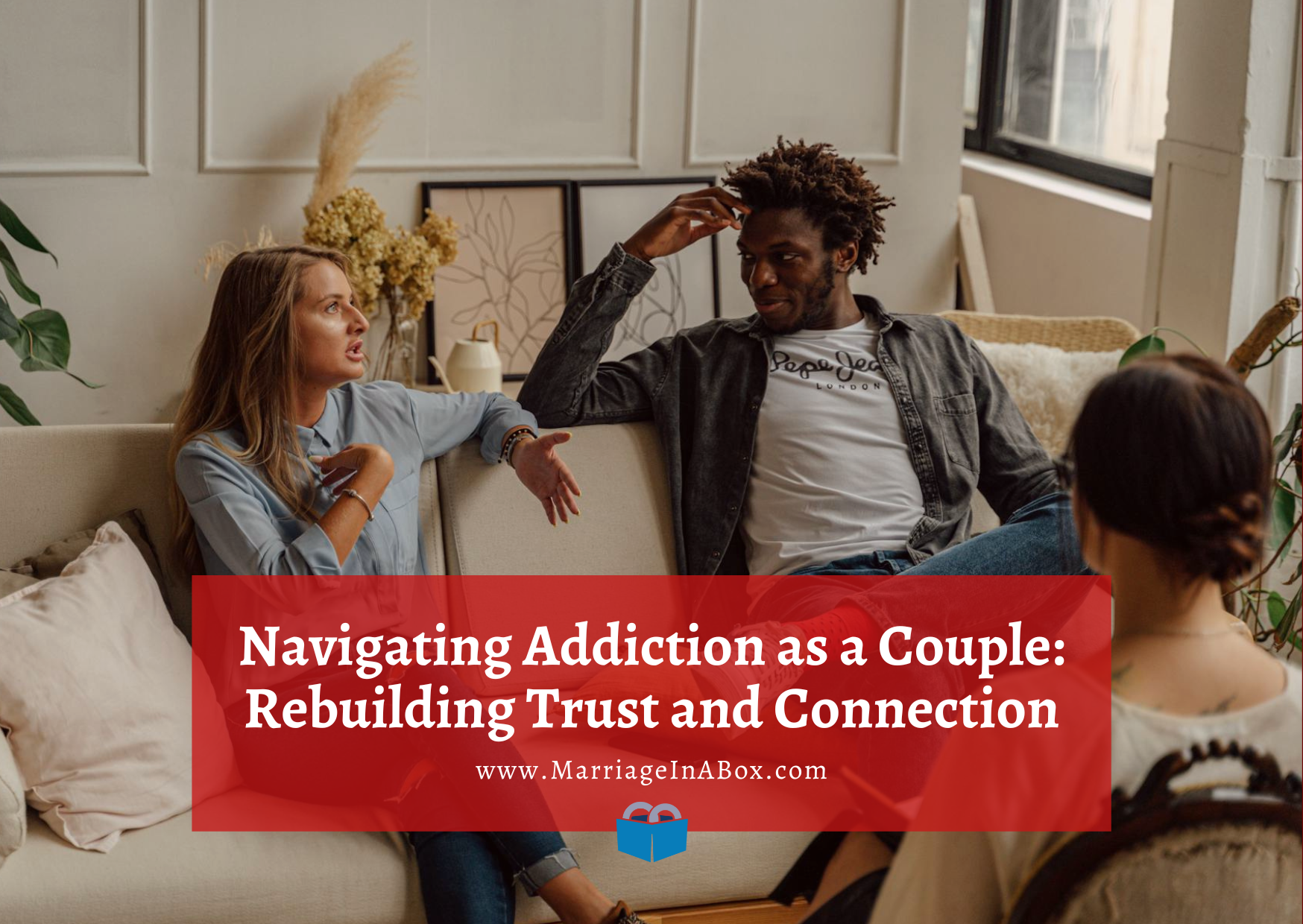Navigating Addiction as a Couple: Rebuilding Trust and Connection
Posted on

In the challenging journey of overcoming addiction as a couple, there are crucial steps to take to ensure your relationship remains strong and supportive. This article provides valuable advice for couples facing addiction, helping them navigate the path to recovery while maintaining their bond.
Seek Professional Help Together
Couples therapy can be a game-changer. A skilled therapist from Marriage In A Box can guide you both in addressing individual struggles and healing as a unit. This safe space fosters open discussions and equips you with tools to manage challenges effectively. It's important to understand that addiction affects not only the individual but also the dynamics of the relationship. Seeking professional help acknowledges the complexity of the situation and allows for tailored strategies to mend both partners' wounds.
Prioritize Open and Honest Communication
Successful recovery relies on transparent dialogue. Sharing thoughts, fears, and progress helps rebuild trust. Acknowledge mistakes and celebrate milestones, fostering an environment of understanding and empathy. Communication isn't just about talking – it's about active listening, compassion, and vulnerability. When both partners can openly express their feelings without fear of judgment, it paves the way for healing and connection.
Establish Clear Boundaries and Expectations
Clearly define what behaviors are acceptable and what are not. Set boundaries that protect both partners and the relationship. This provides a sense of security and structure during the recovery process. Boundaries can range from agreeing on sobriety expectations to outlining how conflicts should be resolved. When a partner knows their role in supporting the other's recovery, it minimizes misunderstandings and reduces triggers.
Avoid Ultimatums and Threats
Recovery is delicate; threats or ultimatums can backfire. Instead, focus on encouragement and support. Let your partner know that you're committed to the relationship, regardless of the challenges. Ultimatums can create a hostile environment and may even push your partner further into addiction. Your support should be unconditional, while also respecting the need for personal responsibility in the recovery journey.
Embrace the Present Moment
Concentrate on the here and now. Dwelling on past mistakes can hinder progress. By focusing on the present, you can actively work on healing and rebuilding together. Addiction recovery is a step-by-step process, and each moment counts. While acknowledging the past is important, fixating on it can prevent both partners from fully engaging in the present moment and making positive changes.
Highlight the Positive
Celebrate the positive aspects of your relationship and life. Gratitude and appreciation counterbalance the difficulties you're facing. Cultivate joy in shared experiences to fortify your bond. Finding moments of joy amid the challenges reinforces the notion that the relationship is worth fighting for. Shared laughter and positive memories strengthen the emotional connection between partners.
Consider Inpatient Treatment if Addiction Continues
If addiction is severe and you’re unable to quit, inpatient treatment at rehabilitation centers in New York City might be necessary. It's crucial to evaluate potential centers based on accommodations, accreditations, treatment modalities, and location. Past patient reviews can offer valuable insights into the center's effectiveness. Inpatient treatment provides the intensive support required for a successful recovery, especially in cases of severe addiction. Seeking professional help signifies strength and commitment to personal healing and the well-being of your relationship.
Overcoming addiction as a couple is a challenging journey, but with the right strategies, you can strengthen your relationship and achieve lasting recovery. Through couples therapy, open communication, and more, you can build a healthier, more resilient partnership. If needed, inpatient treatment can provide the intensive support required for successful recovery. Remember, you're not alone – the path to healing is navigable together. By approaching the recovery process as a united front, you can emerge from the shadows of addiction and into a brighter, healthier future as a couple.
Learn more about our Couples Therapy Exercises